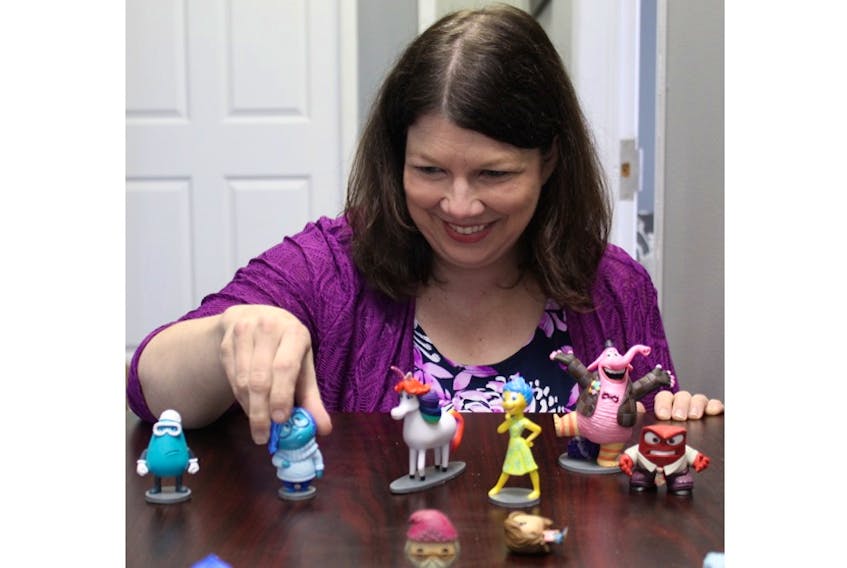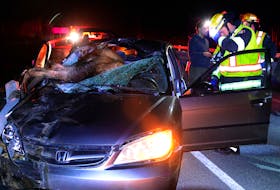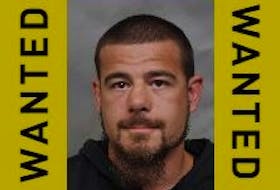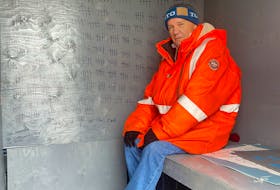ST. JOHN'S, N.L. — Psychologist Dr. Janine Hubbard said there is heightened anxiety and worry amongst children about COVID-19.
Hubbard said the way that we speak with children about the issue can help to alleviate some of those feelings.
“First step is ask your kids what they know about it, or what they have heard, because that gives you a great chance to get a sense of their level of understanding, but also any misconceptions they may have heard. So, you can kind of help to clarify that.
“And then you want to ask them what they are worried about, because we make assumptions as adults. And kids could be far more concerned about, well, ‘What’s going to happen to my hockey playoffs?’ As opposed to, well, ‘What’s going to happen to Nan and Pop?’
Related
- St. John’s businesses offer delivery amidst social distancing
- No plans to close schools in N.L. yet over COVID-19
- Restrictions imposed for Regional Health Authority facilities across Newfoundland and Labrador
“So, it’s helpful to get a sense as to where their worries are, as opposed to us imposing our thoughts on them.”
She said parents and caregivers can remind children that the measures being taken — such as the school district’s cancellation of extracurricular activities between schools — are proactive steps.
“We are working to try to improve things, as opposed to being reactive. So, yes, things sound very scary, and we’re doing all kinds of fairly drastic things, but the idea is that we’re doing it to keep us all safe and protected.
“It’s almost like you can remind them of when we do all of those fire drills at the beginning of the school year so everybody knows what they need to do to stay safe — it’s kind of an increased version of that almost.”
Hubbard said grounding what’s happening in things that children have experienced or understand can be helpful, such as reminding them of a time when someone they knew was sick with the flu, but then they got better.
“The biggest thing is letting them know that there are things they can do, there are things in their power and in their control to try to control things. So, talking about the washing hands, talking about the sneezing and coughing into your sleeve, talking about making sure we’re keeping people safe.”
“The biggest thing is letting them know that there are things they can do, there are things in their power and in their control to try to control things." — Dr. Janine Hubbard
She said parents should also monitor children’s — especially teenagers’ — use of social media, and plan activities the family can do together to help alleviate children’s disappointment that some of their other activities are cancelled.
Hubbard said parents with children with anxiety, obsessive compulsive disorder and germ phobia should pay close attention, and remind children of their coping tools.
She said the Anxiety Canada website has plenty of helpful information.
Schools taking measures to help students
Newfoundland and Labrador English School District CEO and director of education Tony Stack said measures are being taken in schools to help prevent students from getting too overwhelmed with so much information and misinformation about COVID-19.

He said guidance personnel within schools and through various programs offer great supports.
"There are all kinds of things in the world, and it helps to be informed," he said. "It helps to understand the nature of students and some of the challenges of modern society, and (guidance personnel are) well attuned to doing that. They have the utmost care in mind when it comes to students and their well-being. Those types of things are occurring right now in our schools as we speak. We've got some top-notch caring individuals out there."
Stack said students are also learning to critically assess shocking and concerning messages they receive in society, especially through social media.
"A lot of what we do around media literary and social-emotional learning is being able to critically think, and part of that is providing the accurate information to students and having that package presented in such a way that they're critical of suspect resources," Stack said.
"It's what we do as part of preparing them of what can be an assault to the senses, really, when it comes to some of the things that appear in social media platforms."
Twitter: @juanitamercer_ | Twitter: @TelyRosie









